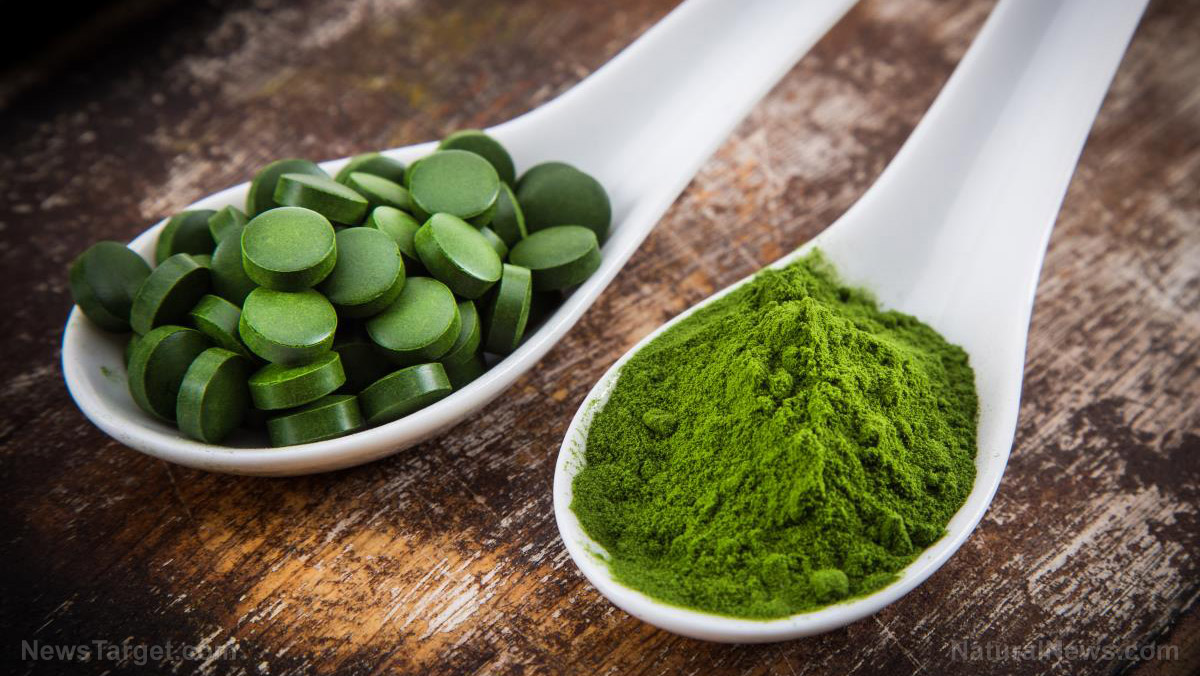Black cumin oil combined with a low-calorie diet can modulate hormone secretion in obese women
12/05/2018 / By Zoey Sky

Black cumin oil, which is derived from the seeds of the Nigella sativa plant, offers many health benefits. A regular intake of black cumin oil can help reduce asthma symptoms and high cholesterol, but according to the results of a study, the oil can also be used to help promote weight loss.
Black seed oil’s effect on body composition
Adipose tissue, or body fat, is an active endocrine organ that performs a major function in the metabolic regulation and hormonal signaling within the human body. For the study, which was published in the journal Journal of Herbal Medicine, a research team set out to determine the effect of black seed oil on the body composition and hormone secretion of obese women.
Specifically, the authors wanted to observe the effects of black cumin oil, which was paired with a low-calorie diet, on body composition and adipokine levels in obese female participants.
Adipokines/adipocytokines are molecule secreted by fat cells. These molecules affect the physiology of cells in other parts of the body. For example, some adipokines may influence appetite, fat storage in the body, or systemic inflammation.
In the study, researchers observed 50 obese women who volunteered for the double-blind, placebo-controlled and randomized clinical trial. The women were randomly divided into two groups with 25 members each: the first was given black cumin seed oil and the second was given a placebo. Both groups followed a low-calorie diet for eight weeks. However, the first group was given three grams of black seed oil daily while the second group was given a three-gram dosage of a placebo every day.
The research team measured the body composition and biochemical parameters of the obese women at the baseline and at the end of the trial. (Related: Add black cumin to your diet: Research shows it can prevent cancer.)
The researchers noted that all 50 of the female participants completed the trial. Based on their reports, none of the participants experienced severe side effects. The authors shared that they didn’t observe noteworthy changes in the liver enzymes of the volunteers following the eight-week trial.
The results of the trial revealed that the mean body mass index (BMI) of the obese women was around 32 kg/m2 at the baseline (the weight in kilograms (kg) is divided by the square of their height in meters (m2)). A BMI of over 30 kg/m2 means you are obese and that your health is at risk.
Study data also showed that black seed oil consumption helped decrease the body fat mass and insulin levels of the volunteers in the first group. The oil also helped increase their adiponectin levels compared to the placebo group after the eight-week period. The researchers commented that at the end of the study, there were no significant changes in BMI, insulin sensitivity, and the peroxisome proliferator activated receptor-gamma (PPAR-G).
The nuclear receptor PPAR-G belongs to the nuclear receptor superfamily that manages your glucose and lipid metabolism.
The researchers concluded that the consumption of black cumin oil, combined with a low-calorie diet, can help regulate hormone secretion and body composition of obese women. They also noted that further studies can help verify if black cumin oil is an effective supplementary therapy for obesity management.
Fast facts on black cumin
Black cumin (N. sativa), a small flowering shrub that bears purple or white-tinged flowers, is native to Eastern Europe, the Middle East, and western Asia.
- Black cumin shrubs produce fruits with tiny black seeds that are often included in various remedies.
- Used for healing and protection as far back as the time of King Tutankhamun in Egypt, black cumin is used in cooking to enhance the of breads, curries, and pickles.
- The seeds have a bitter flavor similar to cumin or oregano.
- Black cumin is also called black caraway, black onion seed, and kalonji.
- Black cumin oil has antioxidant properties that can help ease inflammation inside the body and on the skin.
Browse more articles about research findings on natural and effective ways to lose weight at Slender.news.
Sources include:
Medical-Dictionary.TheFreeDictionary.com
Tagged Under: adipose, black cumin oil, Black Seed Oil, body fat, diet, fitness, herbal medicine, hormones, low-calorie diet, natural cures, nigella sativa, Obese Women, obesity, overweight, weight loss, women's health



















